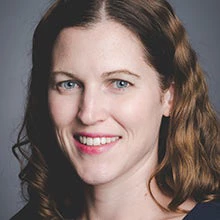 Mobile money has taken off in countries as diverse as Bangladesh, Kenya, Pakistan, Tanzania, Uganda, and Zimbabwe, where mobile operators are developing successful services. At the end of 2013, there were 219 mobile money services in 84 countries, demonstrating the extensive reach of this technology. Around 70% of people in the developing world now have access to a mobile phone, which serves as a gateway to financial services for millions of people where physical bank branches either don’t exist or aren’t readily available.
Mobile money has taken off in countries as diverse as Bangladesh, Kenya, Pakistan, Tanzania, Uganda, and Zimbabwe, where mobile operators are developing successful services. At the end of 2013, there were 219 mobile money services in 84 countries, demonstrating the extensive reach of this technology. Around 70% of people in the developing world now have access to a mobile phone, which serves as a gateway to financial services for millions of people where physical bank branches either don’t exist or aren’t readily available.
Mobile money services have made it easier and cheaper for people to use financial services, and especially for people to send payments. bKash, for example, is one such company working to “widen the net of financial inclusion” through mobile money services. In Bangladesh, bKash has 8 million registered users who use the service to send payments and remittances for a very low cost. In a country where much of the population lives in remote areas, bKash has had a great deal of success reaching the otherwise underserved with financial services through its network of 76,000 agents.
But payments are just the beginning. Some innovators are now putting digital finance at the core of their business models by allowing people to pay in small increments, often in a pay-as-you-go format, via their mobile money accounts for crucial services. The technology behind mobile money also allows for the expansion of other digital financial services such as credit, insurance or savings.
In addition to expanding formal financial services, digital finance is also a way to make other basic services and utilities more accessible to the poor, such as energy, health, education and water. These innovative financing models can provide inexpensive options to remote areas where such access was previously unreliable or unaffordable. Chidi Okpala, director and head of Airtel Money - Africa, a mobile money service with an active base of 5 million customers, sees mobile financial services integrating with other areas, such as healthcare, agriculture, and education, among others.
Mobisol is one company already doing this with pre-paid solar energy. The company combines solar energy with an affordable payment plan powered by a mobile phone. Low-income customers who formerly relied on burning kerosene for light now have a cleaner, safer, and more affordable alternative. The Mobisol model allows customers to pay off the cost of the solar panels over a period of three years with monthly payments that are lower than the cost of kerosene, candles, or car batteries. After three years, the customers own the panels and their electricity is free.
In addition to directly benefiting individuals in underserved areas, digital finance also affords great opportunities for reducing the financial inclusion gap for small businesses by providing them with an access to electronic payment systems, secure financial products and an opportunity to build financial history. It also significantly reduces the cost of doing business: studies indicate that a mobile banking transaction can be done at 15% of the branch banking cost.
For more examples of how digital finance tackles development challenges, watch this video:
The World Bank, IFC and CGAP are co-hosting an event on April 9 that will showcase several innovators in digital finance, including Thomas Duveau of Mobisol, Chidi Okpala of Airtel Money - Africa and Kamal Qadir of bKash, and how they are using this technology to address big development challenges. They will be followed by a panel of stakeholders from the private sector, financial service providers and government who will discuss ways these new business models can be taken to scale to make a real difference in improving the lives of billions worldwide.
You can participate by watching the webcast and tweeting with the hashtag #digitalfinance.


Join the Conversation